Welcome back to Threaded, the column for pro mechanics, enthusiast DIYers, and the tool-obsessed. In this edition, I’ll share a handful of unexpected tools that have nothing to do with bikes that I’ve found rather handy on bikes. I’ll also share a few new tools that have just hit the market, and a second-hand tool with some real cycling history that’s up for sale.
You may notice a refreshing lack of ads or affiliate links. Like all content at Escape Collective, Threaded is wholly funded through the support of members and subscribers. If you find value in this content please support it.
Unexpected finds
From pliers to hex wrenches, to screwdrivers and measurement tools, so much of a well-equipped bicycle workshop doesn’t need to be sourced from within the cycling world. In fact, I commonly recommend that you look beyond cycling brands for such general tools (such as with hex keys and screwdrivers).
Then we get to the tools that you simply wouldn’t think to think about. These may be found in the hardware store for an entirely different purpose, or perhaps are hidden in the depths of the internet.
While not intended to be an exhaustive list of non-cycling things useful for bicycle servicing, this is a short list of tools I simply wouldn’t want to do without that you may not have considered or even know exist. And if you see cycling tool brands offering these in future, you’ll know why.
Vikan bottle brush
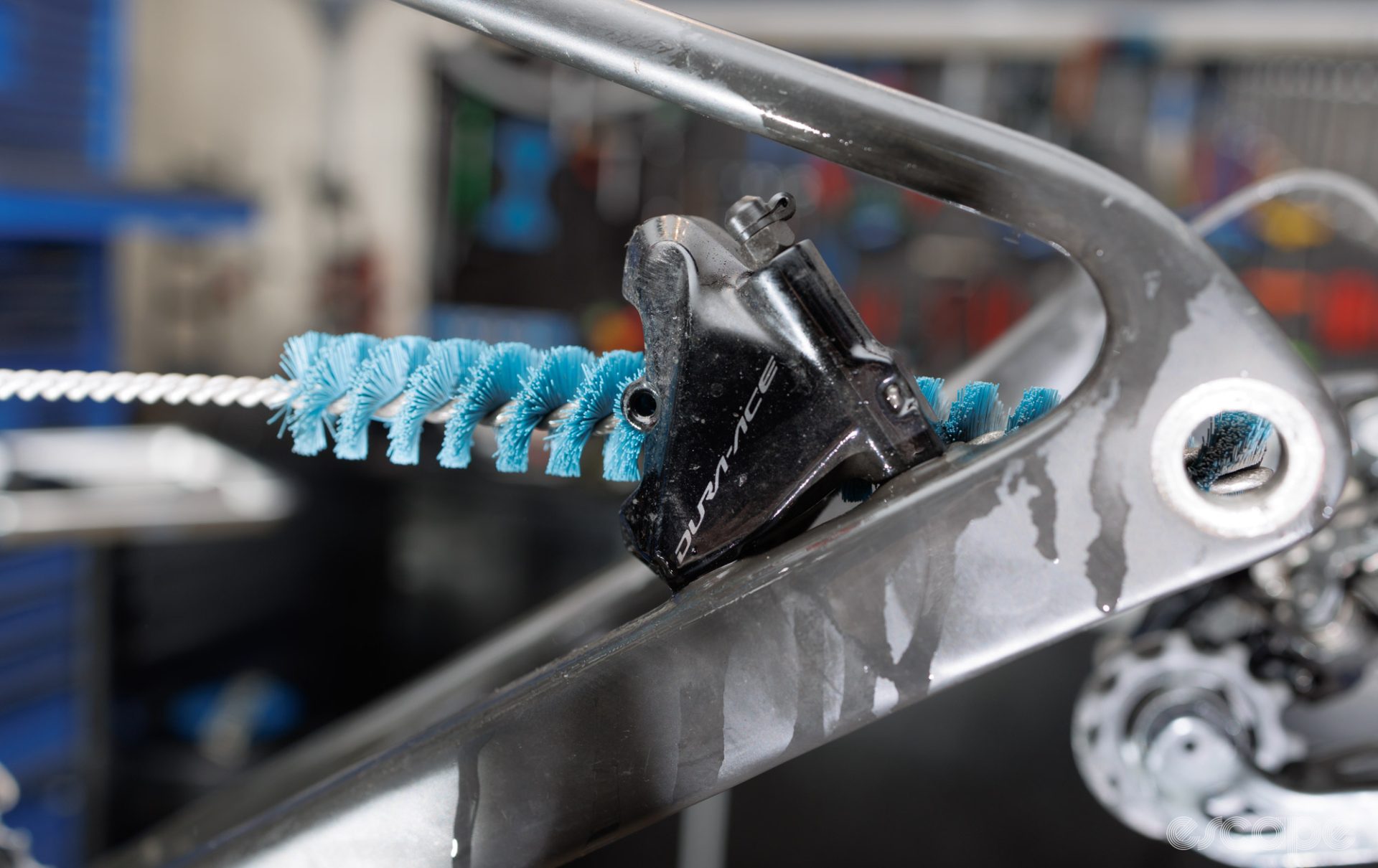
A nice quality bottle brush and a spritz of Isopropyl Alcohol make the perfect combo for quickly cleaning out those dirty disc brake calipers before pushing the pistons back in. Meanwhile, an ever-bigger bottle brush quickly cleans out suspension fork lowers or bottom bracket shells (best to keep dedicated brushes for both tasks to avoid bringing greasy grit into the fork).
Sold by many industrial suppliers (such as RS Online), Vikan is the brand to get. The 20 mm size is perfect for those disc brake calipers, while the 50 mm size is right for the bigger tasks. Whichever you get, a pro tip from SRAM’s Troy Laffey is that the handles unthread anti-clockwise, which allows for easy customising of the length.
Expect to pay approximately: US$6.50
Alligator Forceps
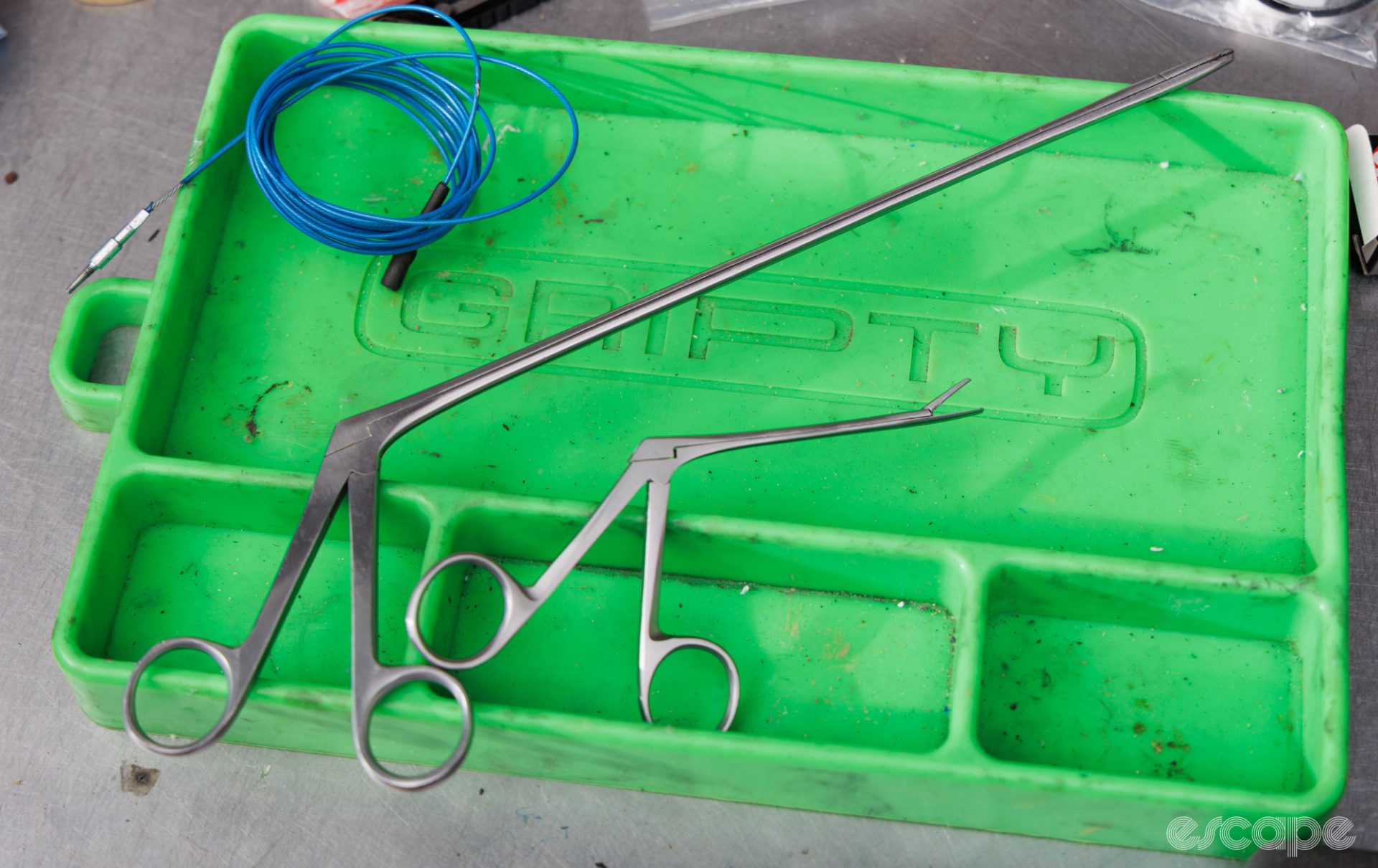
Have you ever tried to grasp a dropper cable from within a seat tube or grab a wire from within the downtube but simply can’t reach it? That’s where a medical-type Alligator forceps can save the day.
I first learned about this one through Adam Savage of MythBusters fame, who uses such a tool in prop creation, but it has proven ideal for several cabling frustrations.
A generic 200 mm length version sold by hobby stores is my most used and biggest day saver. Meanwhile, a tiny and more delicate 80 mm version occasionally gets used, too.
Expect to pay approximately: US$10 to $40
Quick Clamp
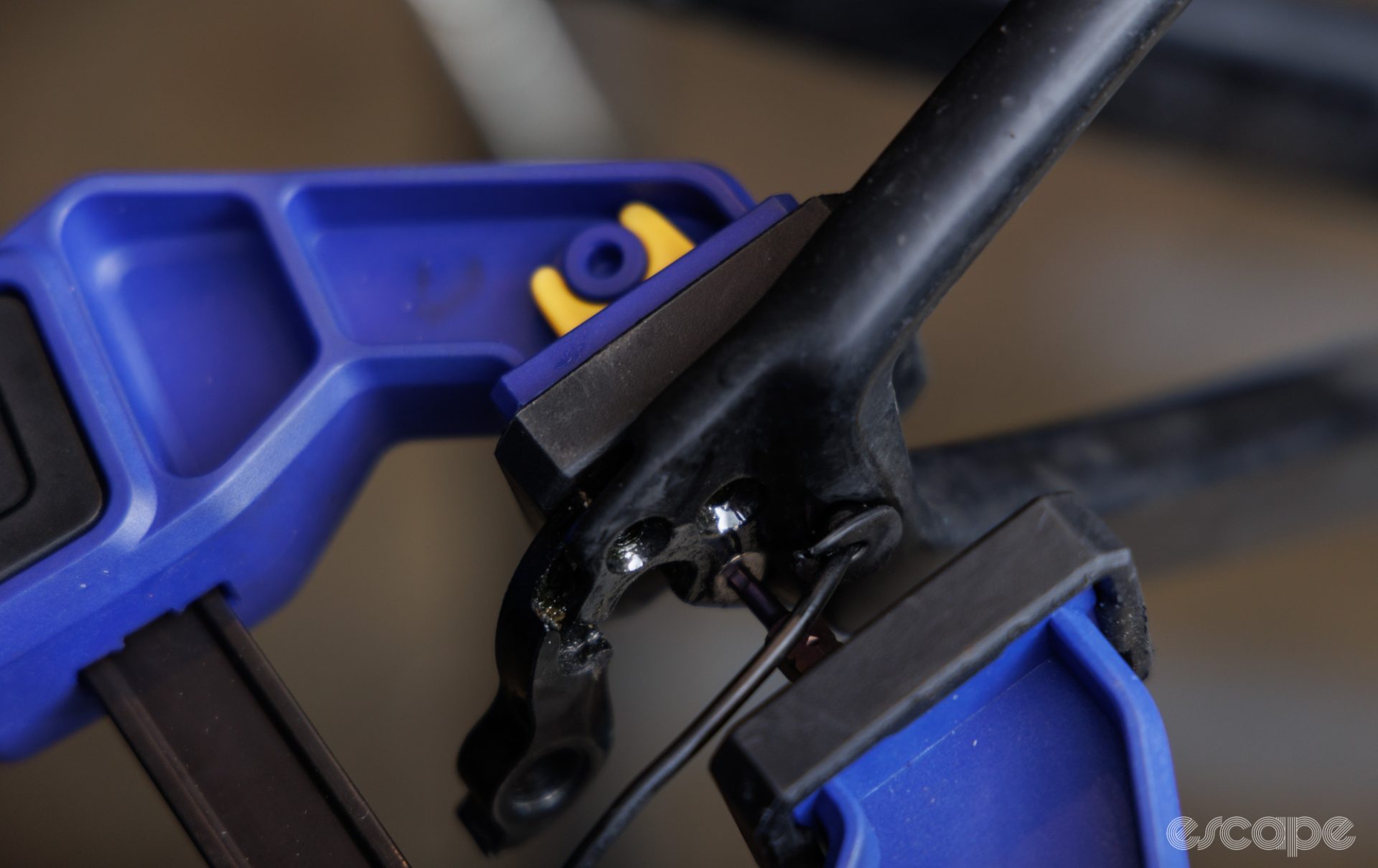
If you’ve clamped two pieces of wood together, you likely already own this one. A Quick Clamp, or ideally a Heavy-Duty version (Irwin Quick-Grip Heavy-Duty is my pick), is a surprisingly handy tool – even more so if you don’t have an all-important bench vice.
I’ve used a quick clamp to help unseat stuck tubeless tyres from rims (squeeze and pull). They can keep frame components from flexing during bearing services on full suspension frames where corroded or with an overly generous thread locker causing the bolt to pull things it shouldn’t. With enough care, you can even use them as a bearing press (I don’t, but you could). Or as pictured, you can use them to keep sockets and bits firmly seated when the risk of rounding is high.
Expect to pay approximately: US$5 to $25
Engineer Adjustable Spanner
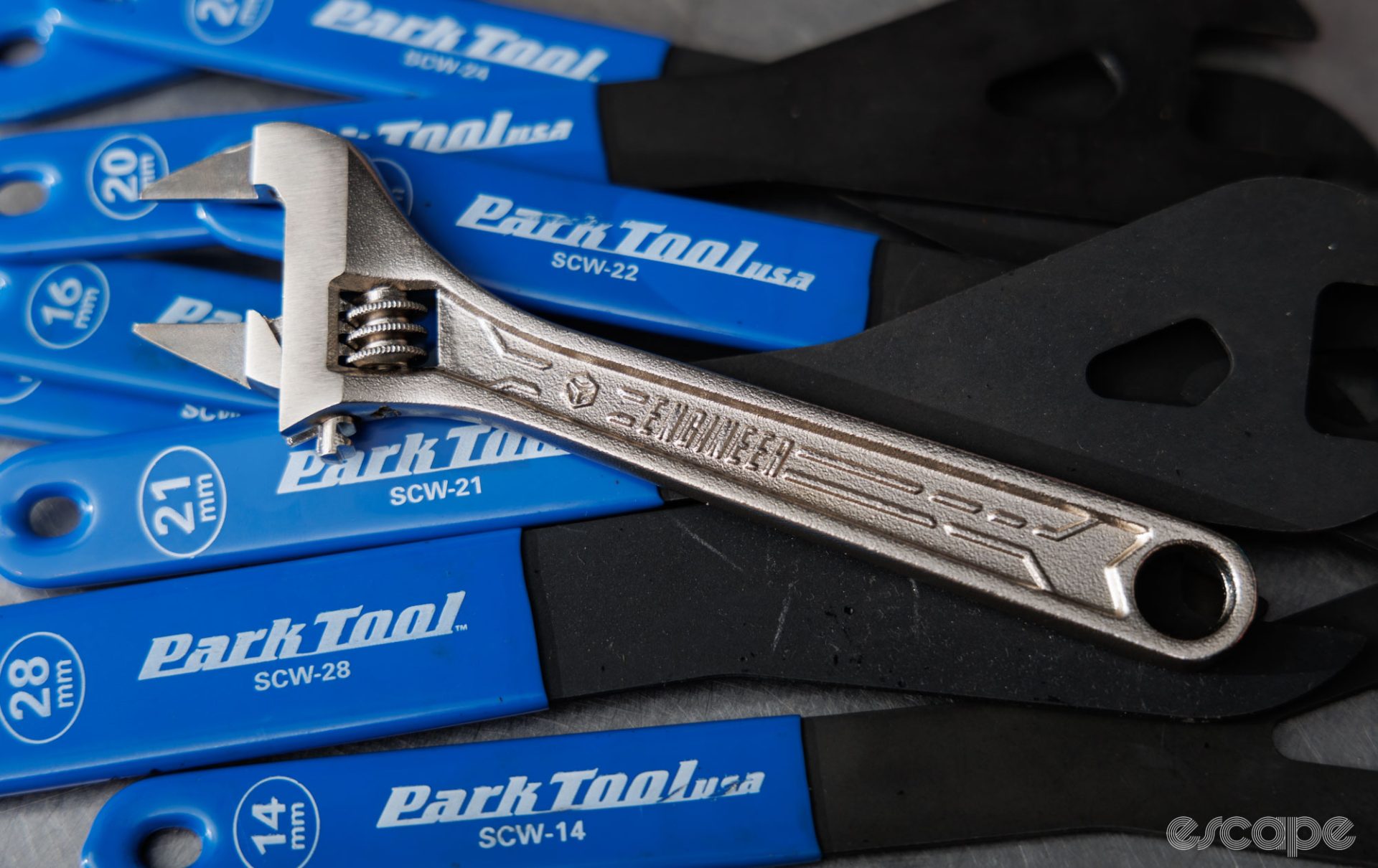

Cone spanners are an old-school tool for servicing cup-and-cone type hub bearings. Pro mechanics likely still use them nearly daily, but home mechanics may only occasionally need such things.
While I still prefer dedicated cone wrenches, the next best thing is an adjustable tool of a slender width. The ultra-fancy option is a custom-modified version of the Knipex Pliers Wrench, but a far more affordable choice is a thin jaw adjustable spanner. Japanese tool company Engineer offers just this (model #TWM-07): it has just 2.1 mm thick jaws and spans 0-25 mm in adjustment. It’s perfect for the portable toolkit, as that rarely needed second cone wrench of the same size, or just as an occasional get-it-done item.
Expect to pay approximately: US$27
Pump spray bottle
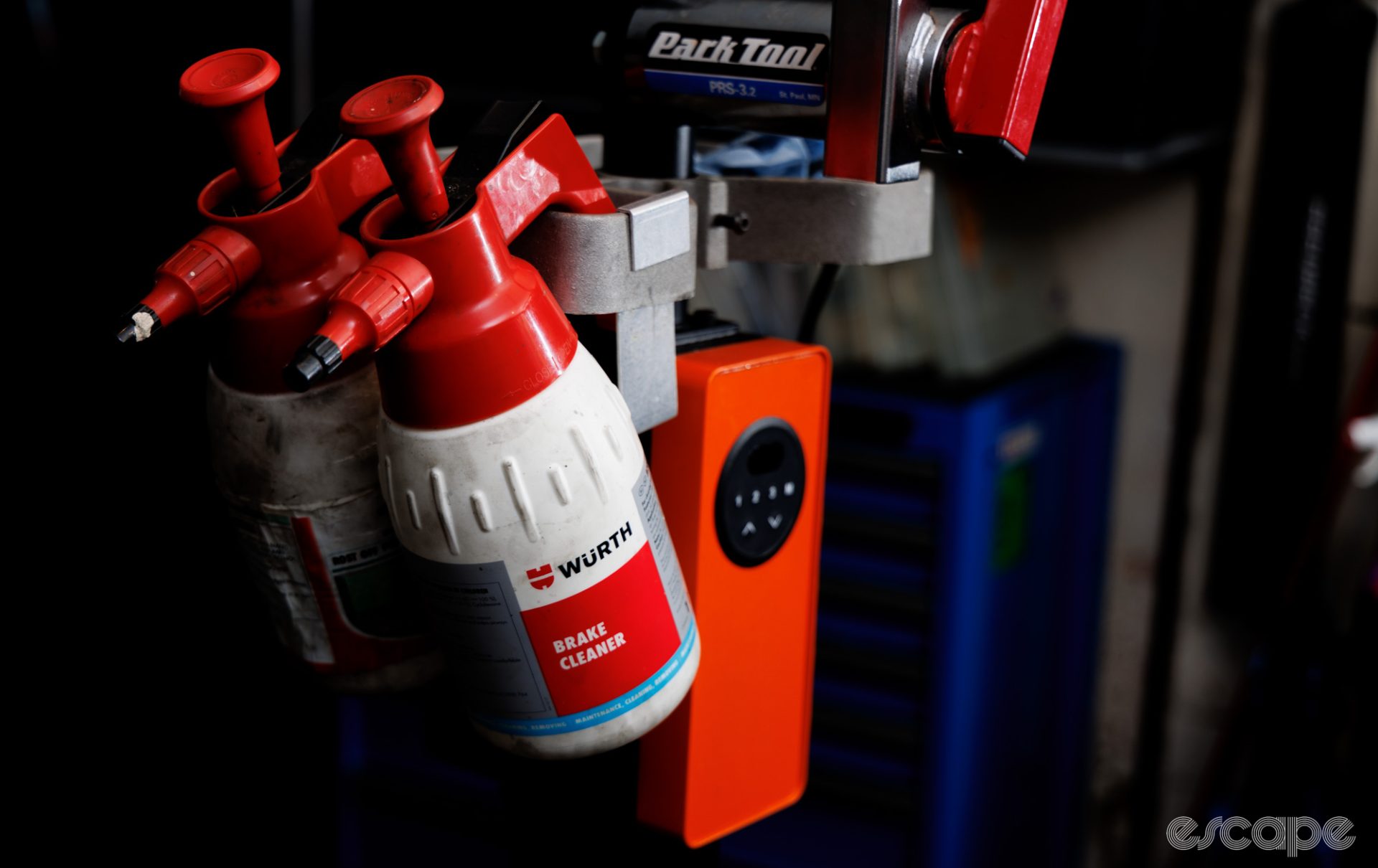
So you have that Vikan brush, now you need that spritz of Isopropyl alcohol. Whenever possible, I avoid purchasing aerosol-based products, partly due to environmental reasons but also due to cost. Instead, I buy Isopropyl alcohol and brake cleaner from a local online chemical supplier and then pour it into dispensing bottles.
I’ve tried many different dispensing bottles over the years, and I keep returning to the old faithful Würth 1L pump-action spray bottle. They have a large capacity, are incredibly durable (one just celebrated its 15th birthday), and are quick to pressurise. If you can’t find Würth in your area, search for Kläger, the OE producer of these bottles.
Expect to pay approximately: US$30 to $45
Iwanson Caliper
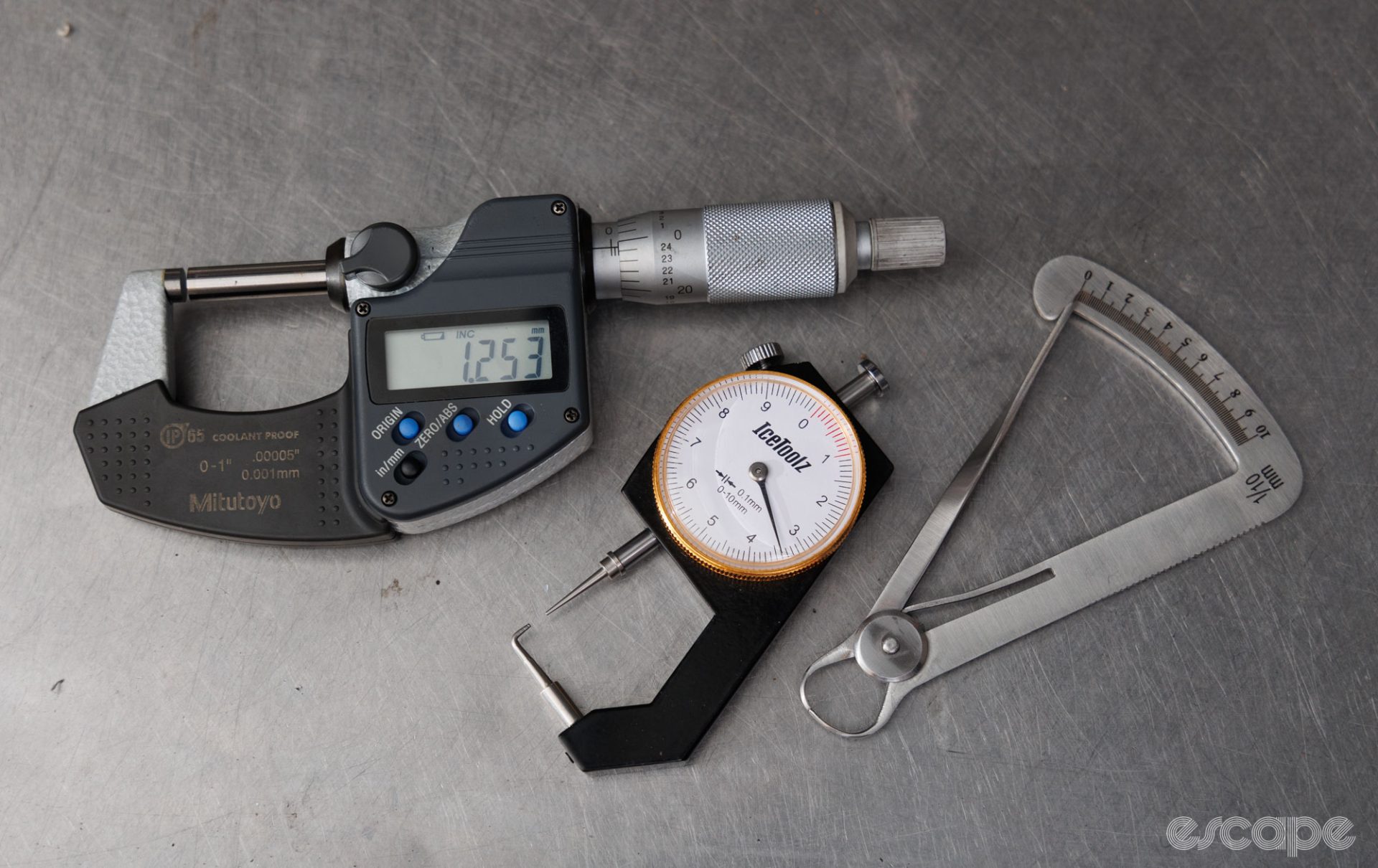
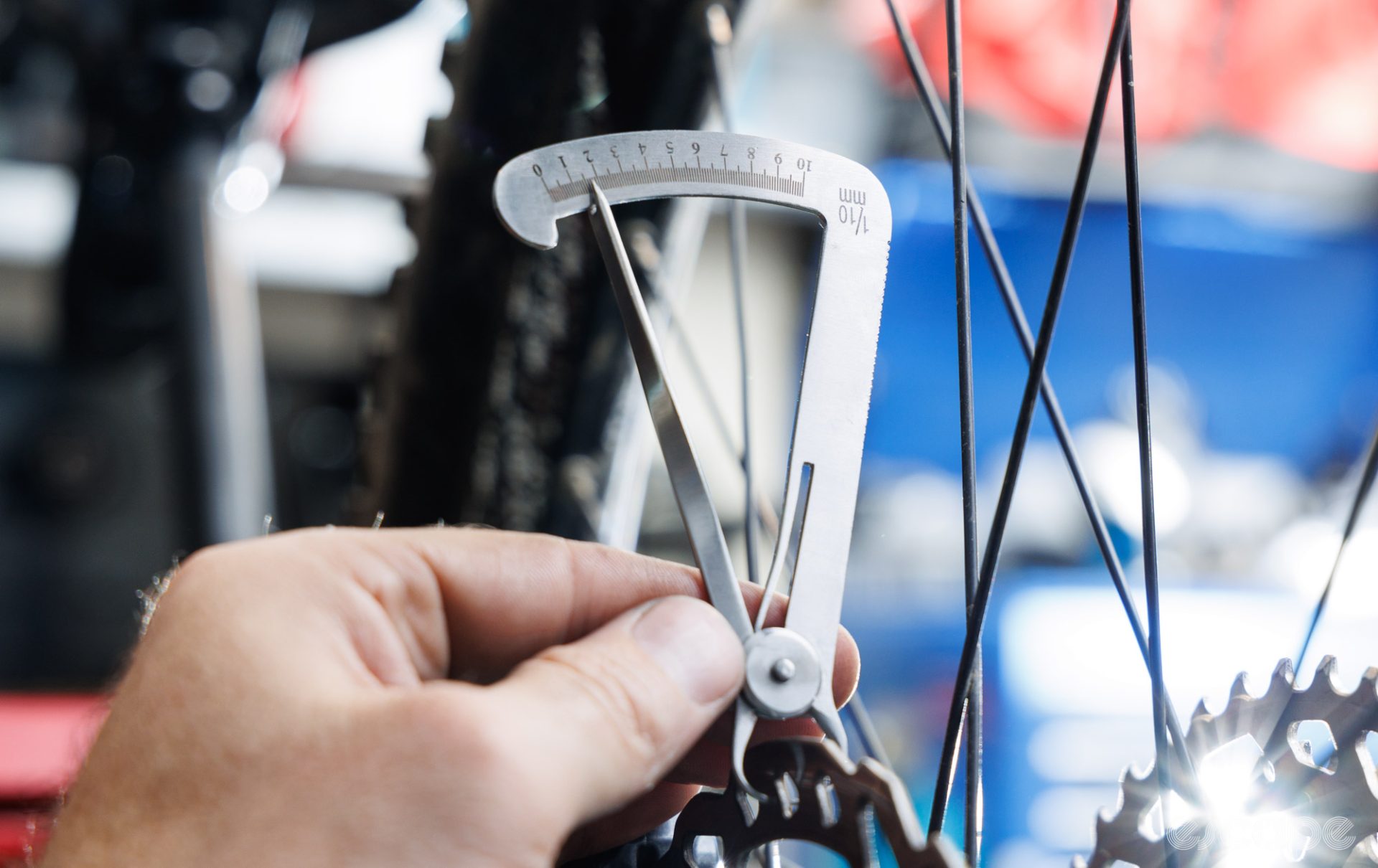
Digital or vernier calipers are a great useful (and needed) tool for working on bikes, but the parallel jaws aren’t always conducive for measuring things like brake track wear on rims or disc rotors. Here you want to measure the centre of the track, which can often be more worn than the edge.
A micrometer or thickness gauge is the ideal tool for this purpose, but both can be expensive. Rather, a Iwanson caliper, also known as a tooth gauge, is a cheap and simple solution to a measurement close enough for the purpose.
Expect to pay approximately: US$5
Inspection Torch
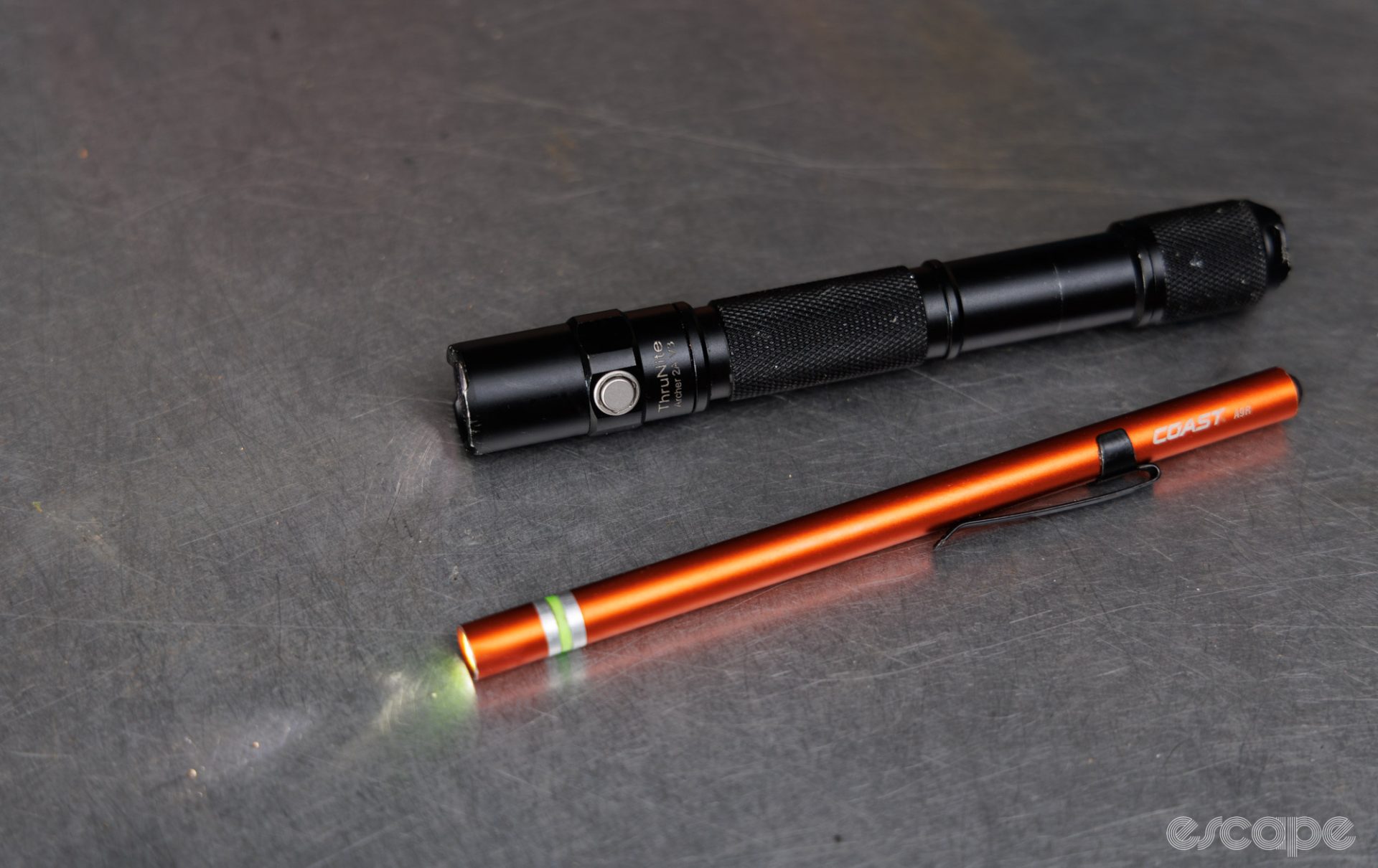
Perhaps it’s my declining eyesight or that bicycle components are getting more precise, but I often use an inspection torch. An inspection torch is a hugely underrated tool for fishing out cables, inspecting disc brake pad wear, checking cables for frays inside shifters, reading bearing numbers, or searching for frame cracks.
My absolute favourite inspection torch for bicycle servicing is the Coast A9R, a slightly more delicate choice that’s simply based on its 9.75 mm external diameter allowing me to stick it down various frame tubes. For other purposes, such as sighting through disc brake calipers, I like the adjustable beam of the Thrunite Archer.
Expect to pay approximately: US$30 to $40
Toy Car
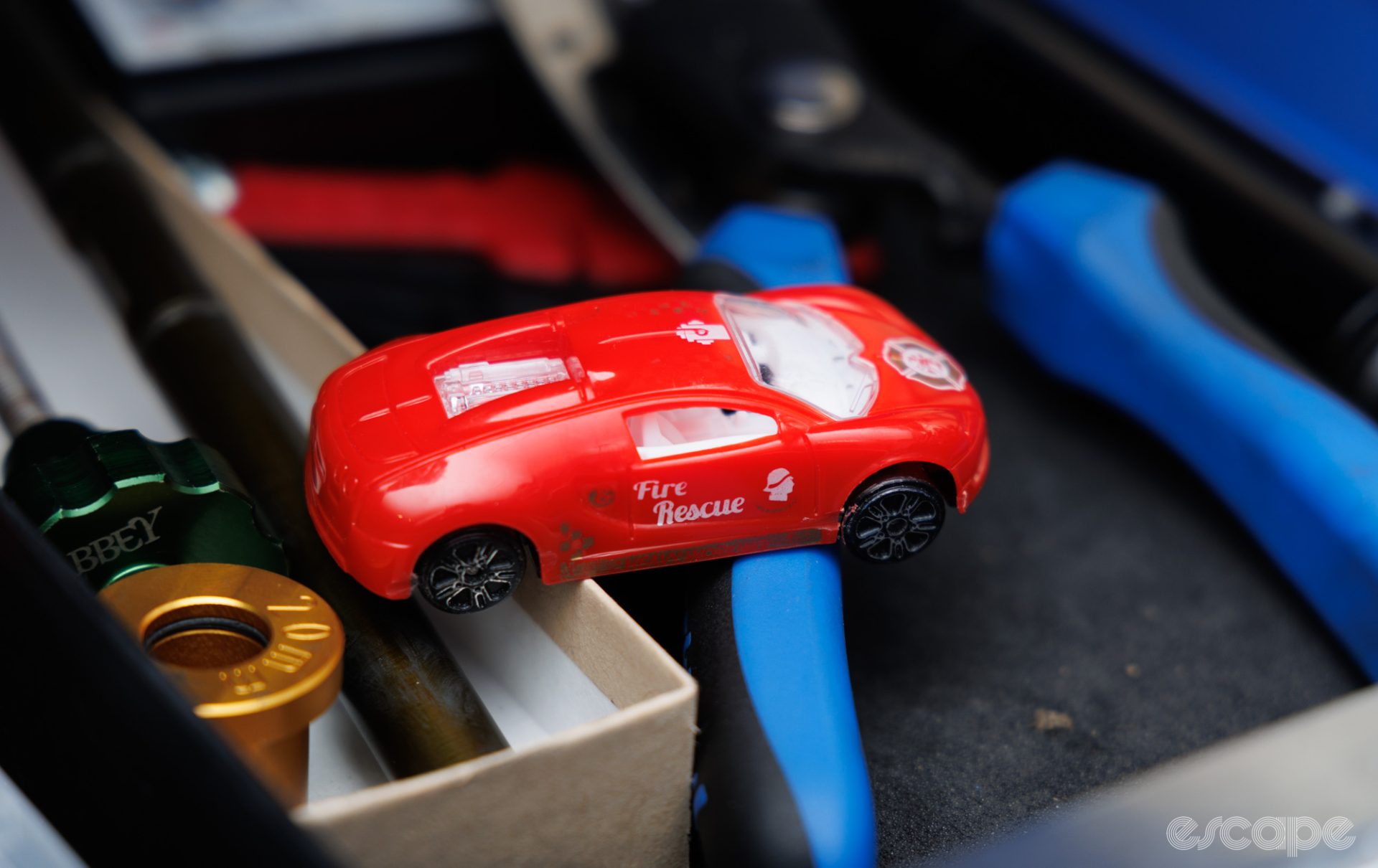
Ok, don’t go stealing this from a child, but some small toy cars are just the right size for helping to seat tubeless rim tape. This totally authentic Fire Rescue car is perfect for 30 mm internal width rims (a common size on modern mountain bikes). Thanks to professional mountain bike Kyle Strait for discovering and sharing this one. Vroom vroom!
Expect to pay approximately: US$2 or a few minutes of tears
Pipe Reamer
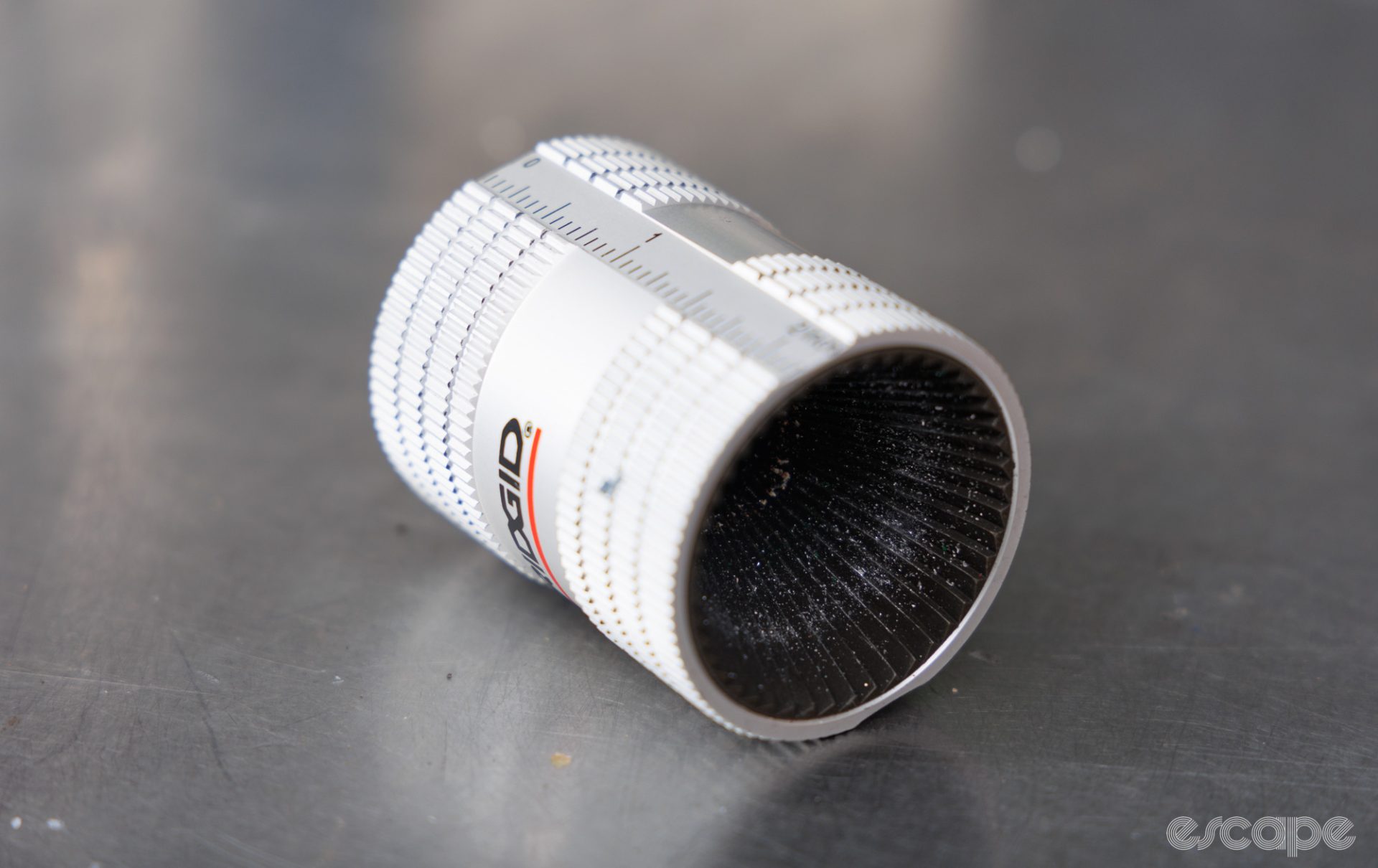
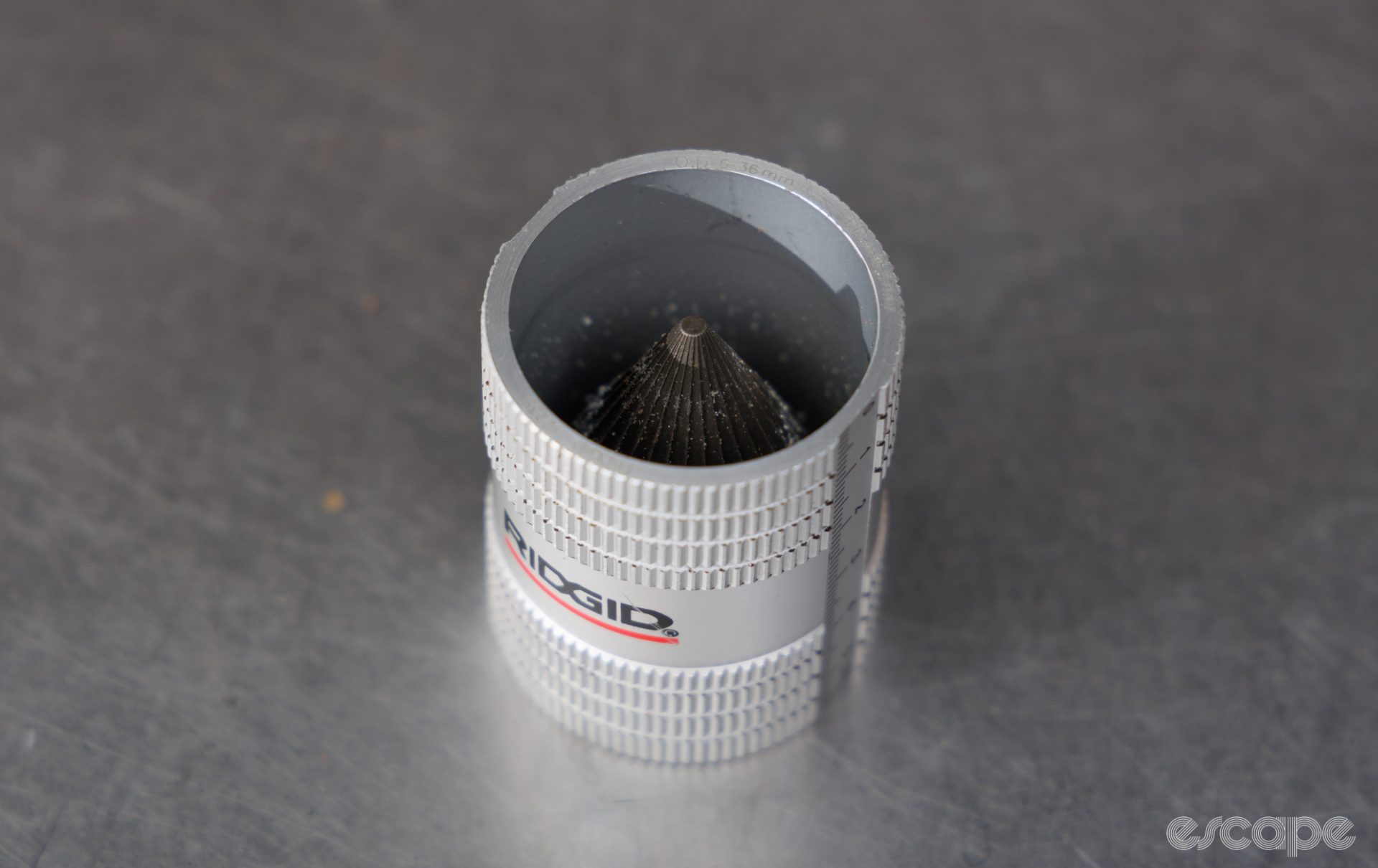
A pipe reamer is a handy tool for finishing off a freshly cut steerer tube, round seatpost, or handlebar end. For aluminium (or steel) components, the Ridgid 223S is a plumbing tool that’ll leave a smooth interior and exterior end to your bike parts.
Remember that using such a reaming tool on carbon fibre can cause delamination. I’ve covered the topic of cutting carbon components before, with the advice being to use either sandpaper or IceToolz’s 16B1 pink doodad.
Expect to pay approximately: US$40
A 3D printer
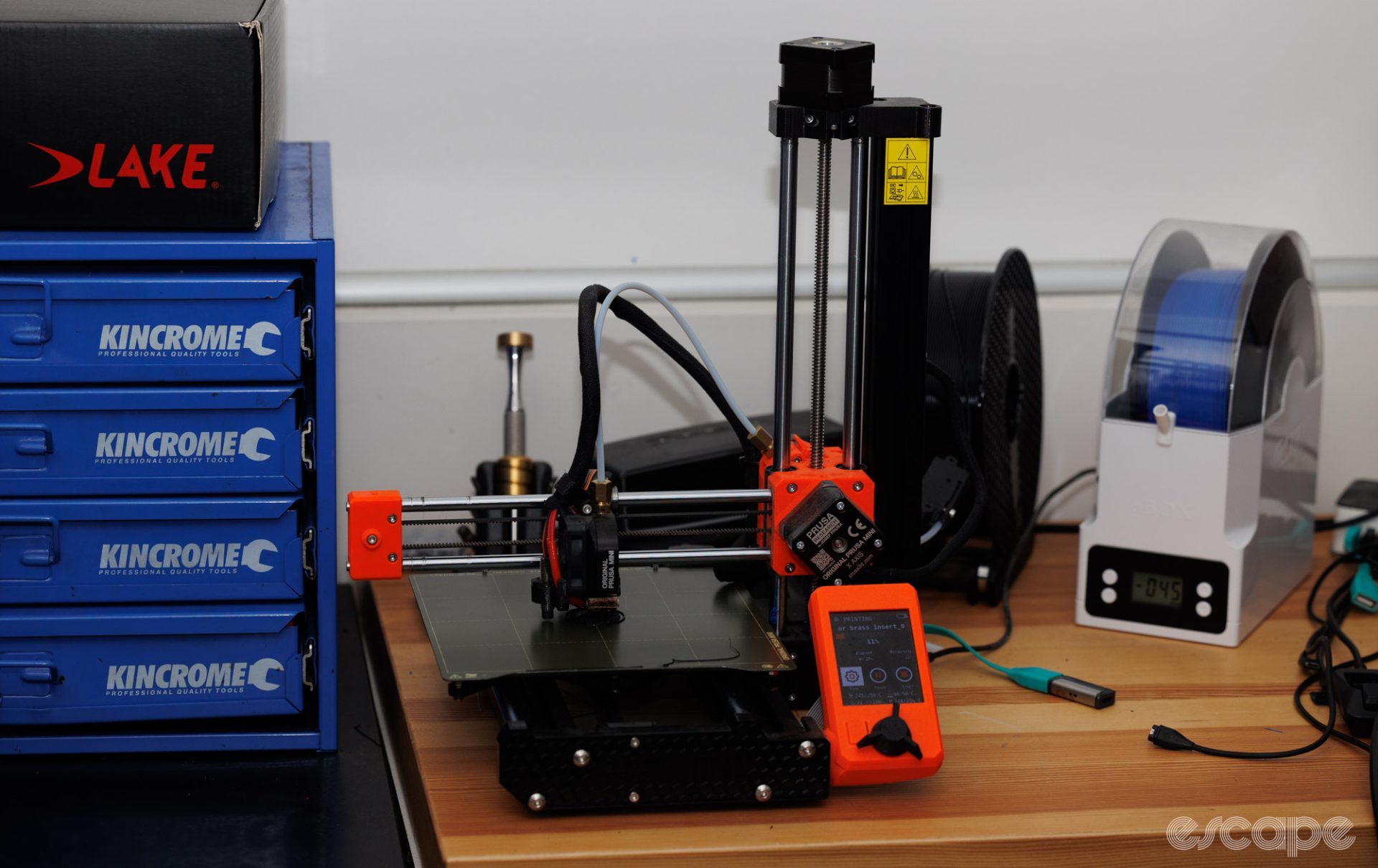
Ah yes, a 3D printer. Ok, so this one has been said before, and I will have a dedicated Threaded article on this topic shortly.
Still, it’s worth reiterating that a 3D printer has become a common tool for me that is forever answering little niggling thoughts or simply providing ultra-specific tools that would otherwise take a long time to file or hacksaw something into shape. I won’t say it’s a time saver, but it’s certainly become a consistent element of my wrenching.
Expect to pay approximately: US$100 to $1M
Got another tool worthy of this list? Please share it in the comments!
New Tools Day
Ok, enough of the oddball tools, it’s time for some show-and-tell.
Wheels Manufacturing
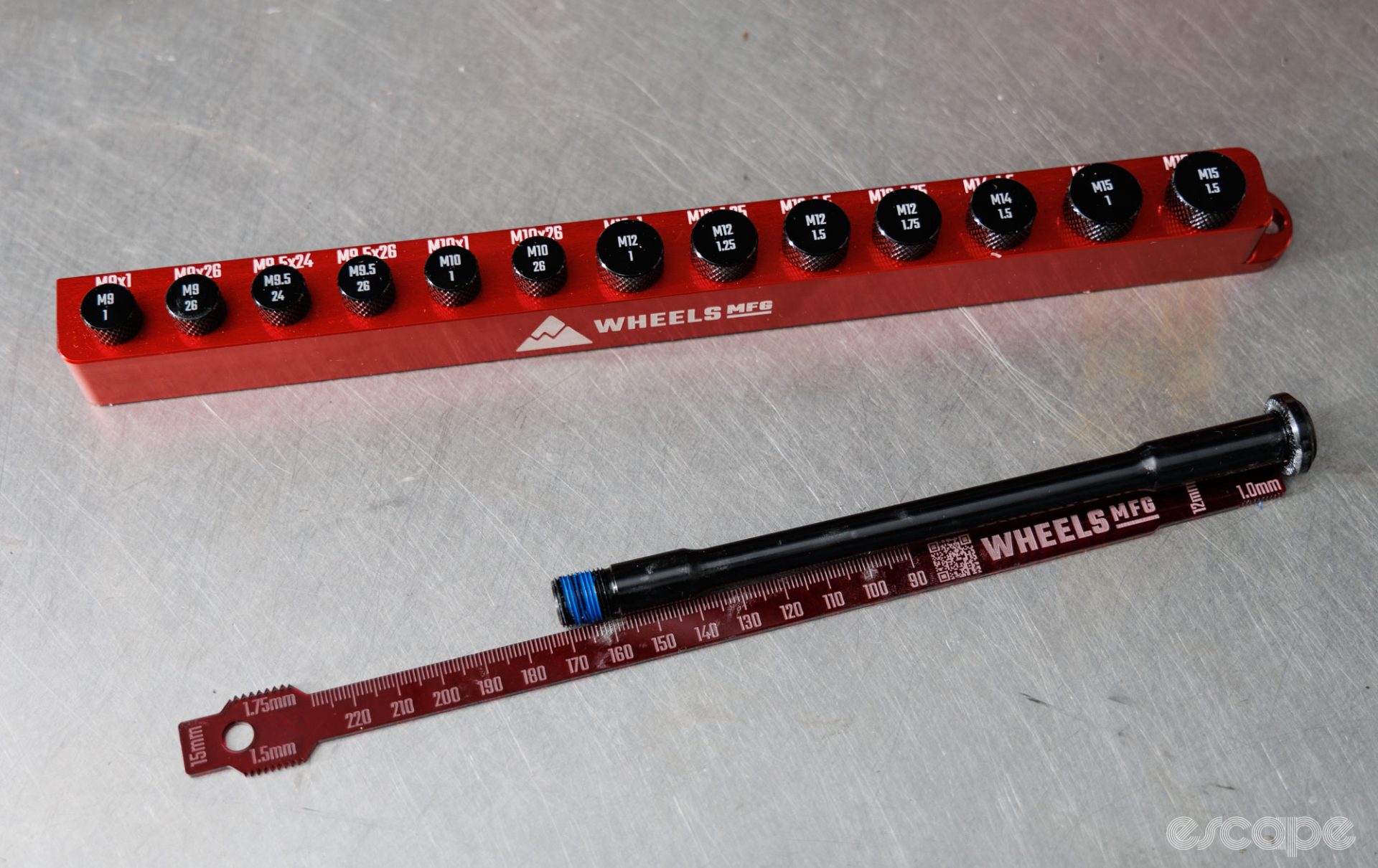
Thru-axles of modern disc-equipped bicycles are one of the least standardised items going – there are literally thousands of combinations of length, diameter, head shape, and thread pitch. USA-based Wheels Manufacturing has added two tools to its range to simplify measuring such axles instead of the typical ruler and thread gauge methods.
The Axle Ruler Pro is made with busy workshops in mind with a solid CNC aluminium construction that has a self-centring length measurement along with 13 female/male test threads spanning common cup-and-cone quick-release axles (something Wheels Manufacturing produces) through to 15 mm thru-axles. It’s an impressive tool, but so is the US$123 price.
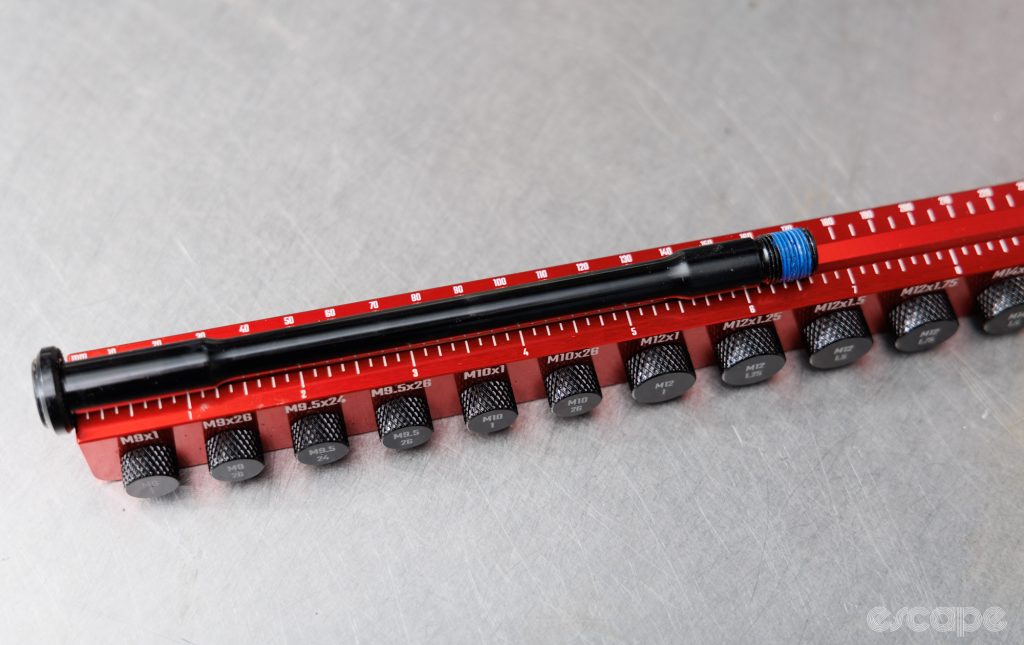
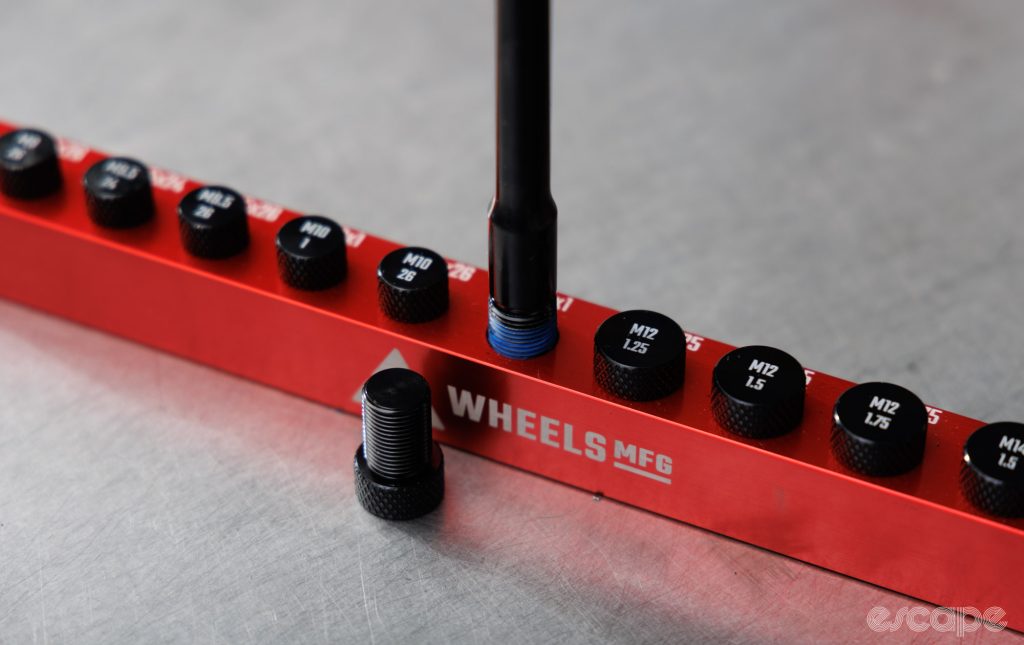
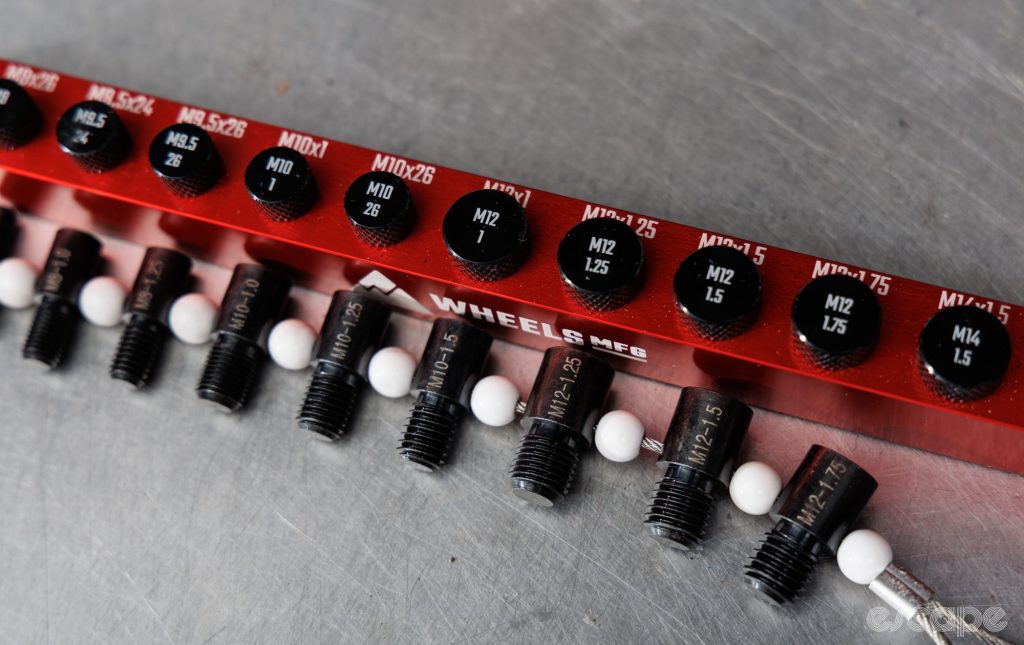
For a mere US$10, there’s the Thru Axle Gauge Essential. This plastic ruler can measure thru-axle lengths and has threads for checking the most common 1, 1.5, and 1.75 pitches.
Granite
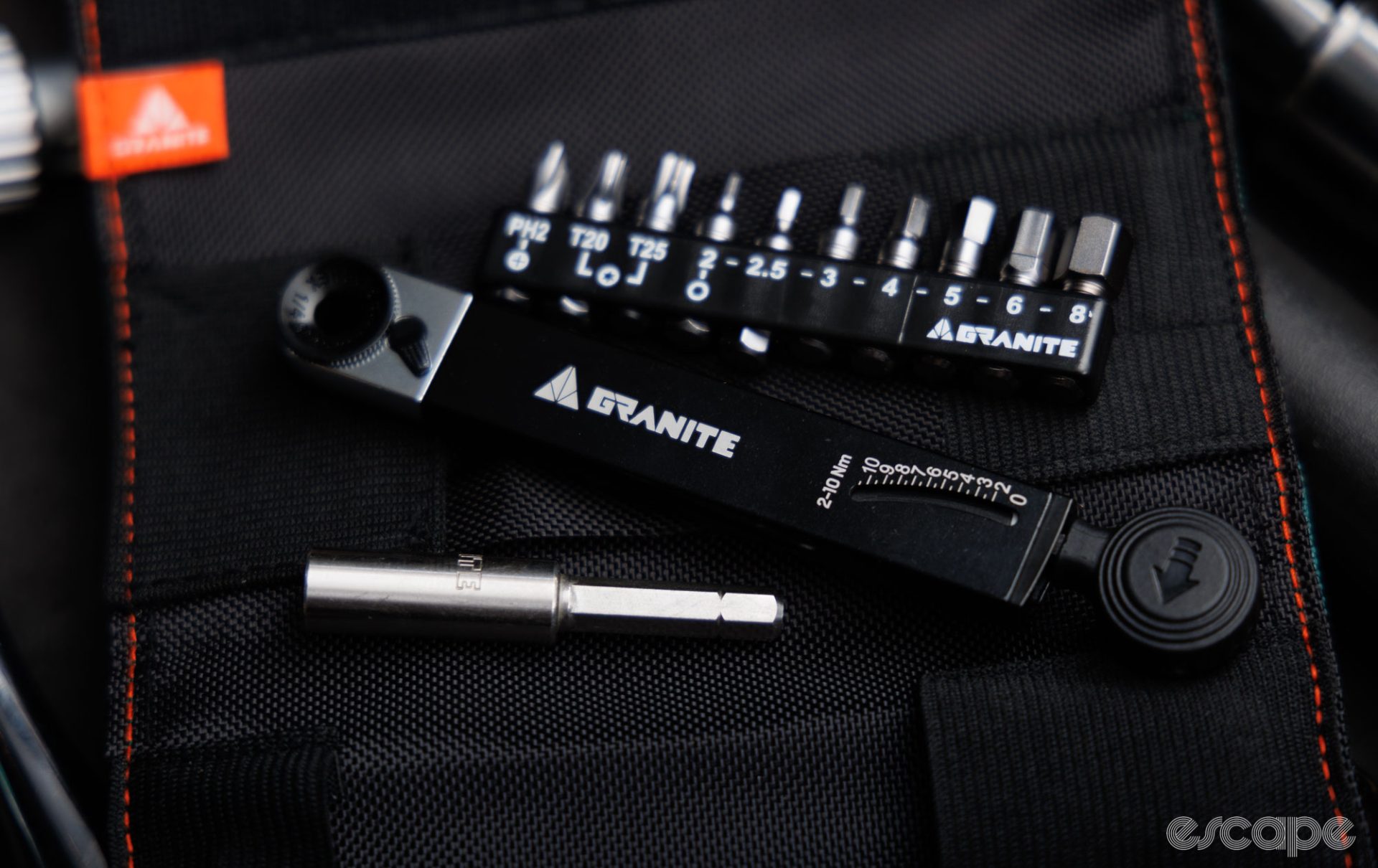
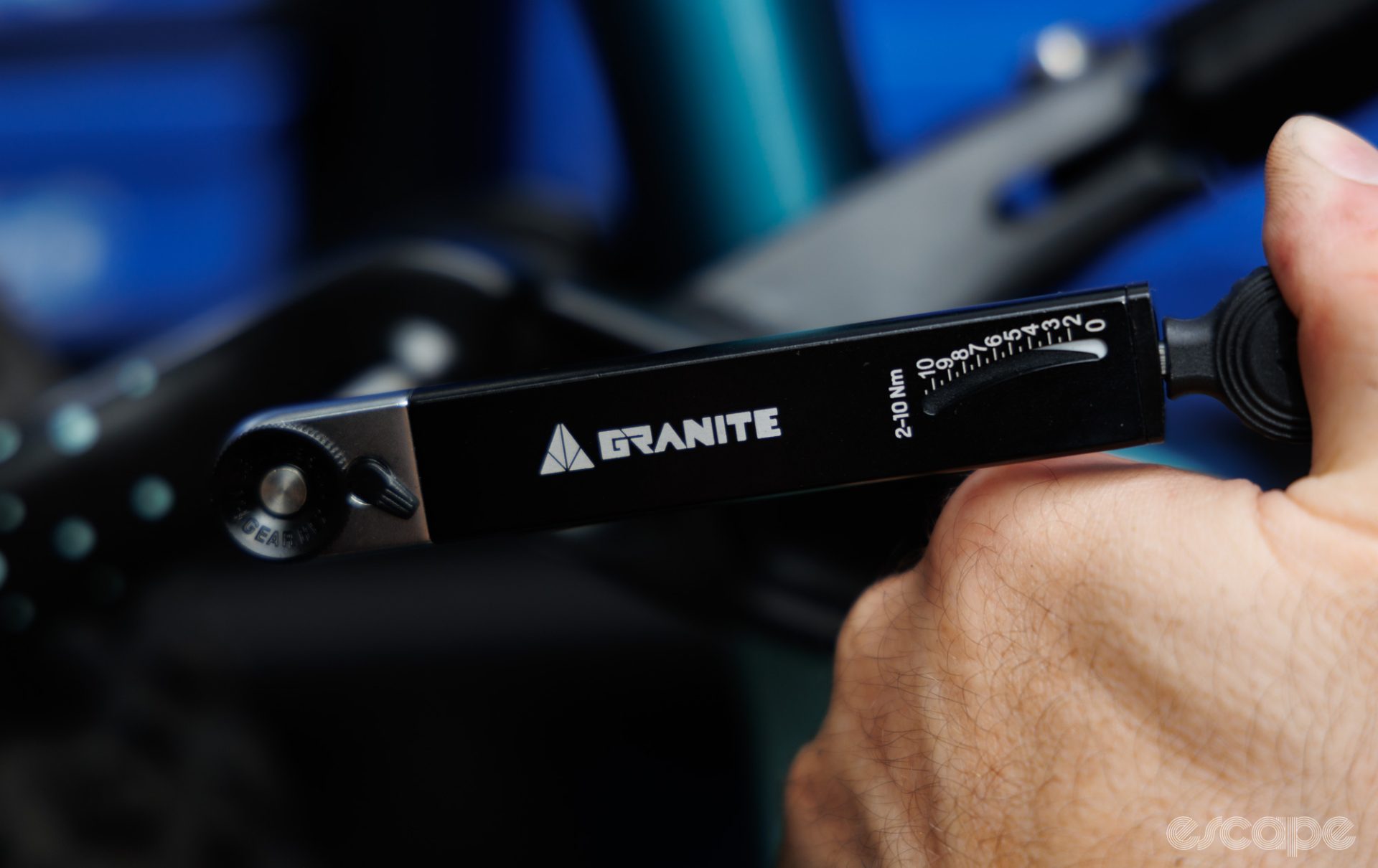
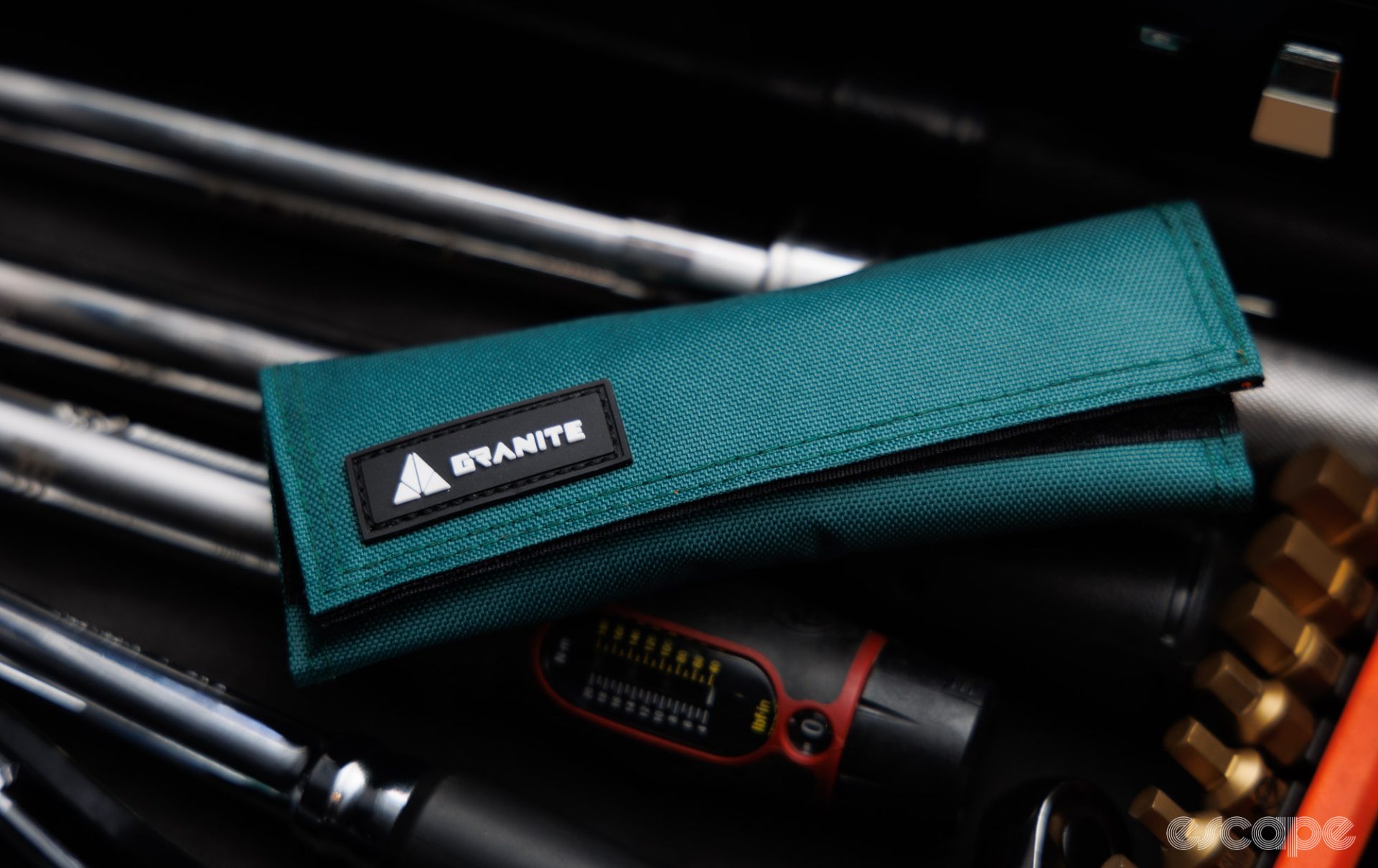
I’m still slowly working through an exhaustive comparative review of travel and ride-friendly torque wrenches. Now added to the test is Granite’s new Rocknroll TQ Torque Ratchet (US$60).
This ratchet is well-sized for carrying on a ride at 188 g (including 10 bits, an extension, and a folding case). The torque tool is something we’ve seen before from PrestaCycle, and it simply works like a regular dual-direction bit ratchet with a beam-type torque wrench placed on the end of the tool. Granite claims an unimpressive +/-15% accuracy across the 2-10Nm range, but in reality, this is refreshingly honest, given that the scale is only as accurate as how it’s read.
More on this and its competitors soon.
A piece of history
Available through sad circumstances, mountain bike pioneers Charlie Cunningham and Jacquie Phelan are selling their original Phil Wood spoke cutting (and rolling) machine. It’s a machine that would have been used during Cunningham’s inventions of zero-dish rear wheels, extra-wide front hubs, and more.
Bought in the 1970s and customised by Cunningham himself, Phil Wood has now fully refurbished and updated the machine in preparation of sale. Phelan is selling it to help fund Cunningham’s medical care following a brain injury. A new machine costs approximately US$7,000, with Phelan hoping to get US$8,000 for this piece of history.
Coming up
That’s a wrap on Threaded for this week. The next edition may be a week later than the usual fortnightly schedule, but it’ll be worth the wait.
Happy wrenching!
Threaded is an ongoing series for tool nerds, DIYers, and professional mechanics. If you haven’t already, you can sign up for free to receive notice of future editions.
What did you think of this story?
